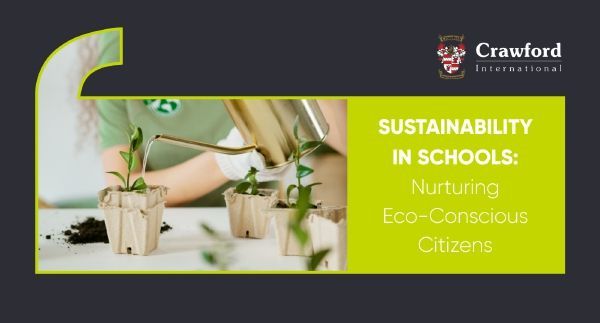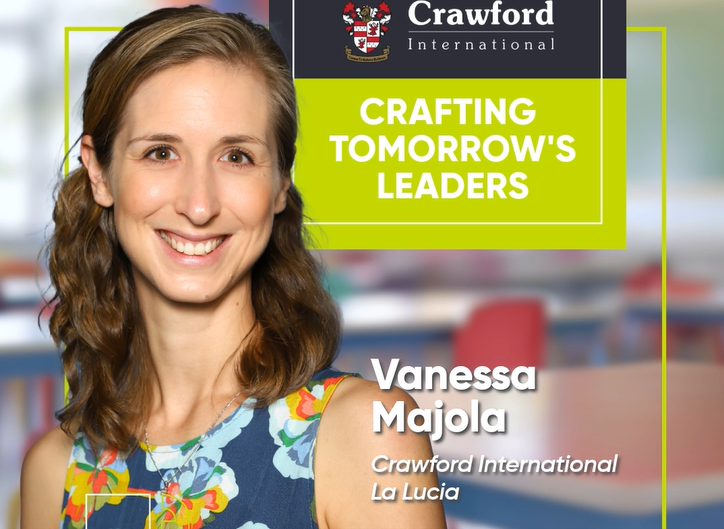Sustainability in Schools
Karabo Molokomme • December 1, 2023

Sustainability in Schools
Our planet is a pretty big deal, as we are all aware, which is why it seems unbelievable that the ‘sustainability drive’ as we know it today is less than 30 years old. The concept first surfaced in 1987 when a study, named the Brundtland Report, was presented to the United Nations by a few core countries. This report outlined the impeding devastation of poverty, climate change, pollution, environmental damage and the threat to future generations.
Today ‘sustainable living’ is not a mere concept in a report, but rather a very real issue that our children have to face on a daily basis.
But what is sustainability?
There is much debate about what the term ‘sustainability’ actually means, but the most concise, and accepted, explanation comes from the Brundtland Report itself.
Here ‘Sustainability’ is defined as: meeting the needs of the present, without compromising the ability of future generations to meet their own needs. In other words, what are we doing today to ensure that our people of the future have a chance?
That is a tough question to answer because where does one even start? The best place is at school!
‘Sustainability’ relates to many things, in fact the United Nations has a list of ‘17 Sustainable Goals’ that drives their actions. These goals range from: No poverty, Zero Hunger, Clean Water and Sanitisation to Affordable Clean Energy, Life Below Water and Climate Action. Side note: These goals are very well presented on the UN Website, outlining the issues and how we can help. Click here to read more:
At Crawford International, a cornerstone of our education involves Sustainability and the quest to educate our children through various campaigns, projects, activities and experience. Every child needs to understand the sustainability problem and HOW they can play a role in the solution. Here are some fun examples of how sustainability is present through school initiatives.
Upcycling Projects – Change of thinking
Upcycling is the art of creating something useful or beautiful out of items that would normally be deemed as ‘rubbish’. For example, empty cardboard toilet roles can be glued together to create a miniature car collection garage. Or old tins, can be washed and drilled with holes to make effective candle holders. Picking up litter at home or around the school, and then challenging our students to create something from that litter, changes the way a child views rubbish and its recyclable uses.
Out-in the Field Learning – Analysing processes
We recently wrote a blog about Experiential Learning (https://www.crawfordinternational.co.za/beyond-textbooks-the-power-of-experiential-learning) where getting children to do is a far more impactful learning experience than reading about it in a textbook. For example: School tours to sustainable farms, where children are able to pick their own fruit, milk a cow and discover the food process from farm to table, offers children first-hand knowledge. And with knowledge comes power to change. And in true Crawford International style, we will always encourage our students to take it one step further by challenging them to analyse the current processes and to think creatively about better ways to do those processes.
Water Clean Up Project – Community for good
According to the United Nations Environmental Program, up to 12.7 million metric tons of plastic made its way into the ocean in 2022. This plastic reached our oceans via our rivers and dams. Now, there are community groups in South Africa, made up of adults and children, who have made it their goal to clean up our waterways - and what a difference they have made! Besides removing and recycling the waste, these groups have also succeeded in creating something even more important… a community! There is nothing more powerful than a community of people with common interests to achieve a common goal. Get your child involved in one of these community projects and you will soon see how sustainability solutions will grow.
Teaching by Example – Always looking for opportunities.
At Crawford International Schools, we believe that modelling behaviour as a guide to our children is far more effective than telling them what to do. Therefore, at our various campuses we are always working hard to get children involved in our sustainable projects, including: Anti-hunger initiatives, recycling drives, planting of veggie gardens and water saving campaigns. It is important for us to teach children about the concepts, and the important impact these things have on our planet. Afterall, our children are the future leaders of our planet, so let’s equip them well with sustainable goals.
See some of our Sustainable projects here:












